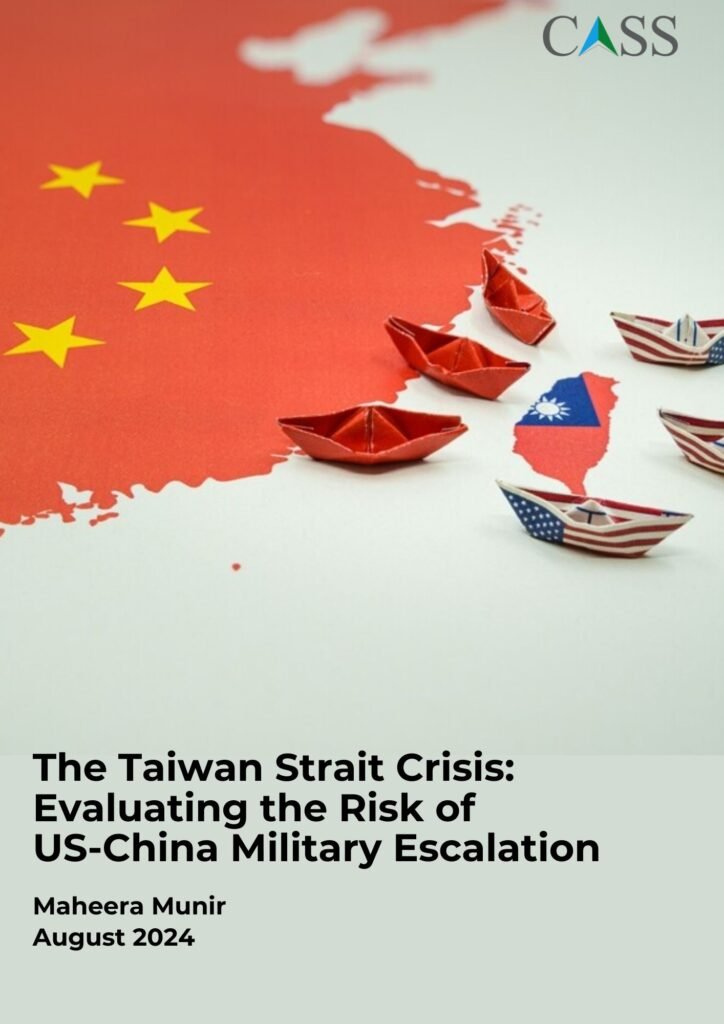THE TAIWAN STRAIT CRISIS: EVALUATING THE RISK OF US-CHINA MILITARY ESCALATION

ABSTRACT
The Taiwan Strait Crisis has long stood as a pivotal point of tension between the People’s Republic of China (PRC) and Taiwan, evolving from mid-20th-century military confrontations to modern strategic rivalries. This paper examines the potential for a direct military confrontation between the United States and China over Taiwan. Central to the crisis is the conflict between China’s One-China policy and the US strategic ambiguity, which has recently intensified due to the US’ more assertive stance and the broader Sino-US strategic competition. The paper analyses the roles of regional alliances, economic interdependence, and internal political factors within Taiwan in influencing the potential for military escalation. Furthermore, the study explores the implications of cyber warfare and the strategic importance of Taiwan in global supply chains, particularly regarding its semiconductor industry. The findings highlight that while various factors could exacerbate tensions, significant deterrents, including regional security partnerships and economic dependencies, offer considerable restraint against a full-scale conflict. However, the situation remains precarious, with potential future scenarios ranging from peaceful resolution and continued status quo to direct military confrontation. This underscores the critical need for proactive diplomacy, strategic restraint, and a commitment to dialogue on both, in fact, all sides.

Paper Available on Request
CASS LAhore

The Centre for Aerospace & Security Studies (CASS) was established in July 2021 to inform policymakers and the public about issues related to aerospace and security from an independent, non-partisan and future-centric analytical lens.
CASS Newsletter
- Home
- About Us
- Research Domains
- Publications
- Events
- Gallery
- Contact Us
@2021 - All Right Reserved. Designed and Developed by PenciDesign




